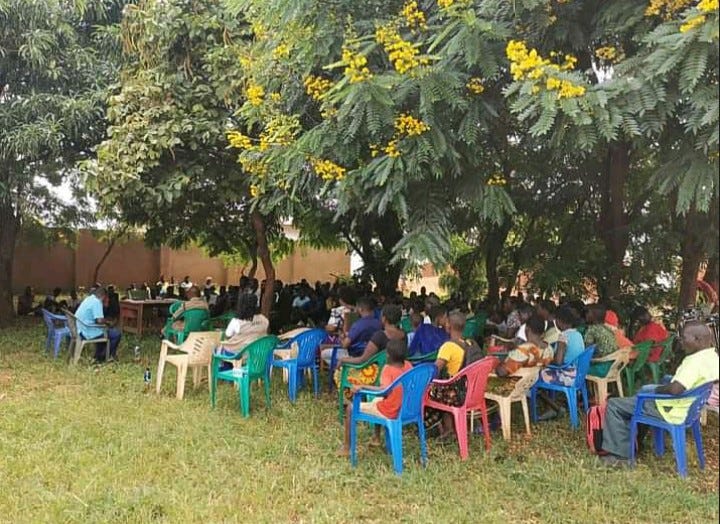Mobile Courts in Malawi Empowering Communities to Fight Gender-Based Violence
The lessons learned from the mobile courts in Malawi can inform and inspire similar initiatives in other countries, ultimately contributing to a world free from gender-based violence.
DOWA, MALAWI - Mobile courts that sit at different communities in the area of Traditional Authority (TA) Kayembe in Dowa are serving as an eye-opener in the fight against gender-based violence (GBV), writes Howard Mlozi.
Through the implementation of mobile courts, a paradigm shift in the fight against such offenses has begun, offering communities a firsthand experience of justice served.
For locals in TA Kayembe, witnessing court proceedings concerning GBV-related cases has been an uncommon occurrence.
"This is something that we used to hear on radio or read in newspapers," mentioned TA Kayembe, reflecting on past instances of distant legal actions.
However, the introduction of mobile courts conducting sessions within their communities has brought the gravity of such crimes home.
TA Kayembe enthusiastically remarked during a well-attended mobile court session, "Today, we are lucky to have mobile courts sitting right in our communities. And this is sending a strong message to would-be offenders."
A significant moment in this initiative was the climax reached on April 19, 2022, at T/A Kayembe headquarters.
The Mponela Magistrate's Court, during a well-patronized session, sentenced two individuals accused of defilement, marking a pivotal turning point in addressing GBV.
Mwenye Msadala Phiri, a 29-year-old from Kawamba Village, faced 14 years of imprisonment with hard labor for defiling his 9-year-old niece.
Semu Nephtali received a 12-year sentence for engaging in a romantic relationship with a 16-year-old and subsequently sexually abusing her.
Both cases were prosecuted under section 138 (1) of the penal code.
The severity of these punishments aimed to set a precedent, as Magistrate Talakwanji Mdala emphasized, "Sexual Gender-Based Violence (SGBV) is a serious crime."
This landmark judgment resonated strongly with the communities and TA Kayembe, who expressed gratitude for the fruition of the Nkhanza Toto project.
"For a long time, women and girls from my area have been denied access to justice," said TA Kayembe, acknowledging the historical lack of legal recourse.
However, with the advent of mobile courts, the enforcement of the law has gained appreciation and begun altering attitudes towards GBV.
Naomi Nkhonjera, the Genet Projects Coordinator, highlighted that the mobile court for gender justice operates under the Nkhanza Toto project, addressing alarming statistics of GBV in Dowa district.
National surveys have depicted high incidences of violence against women and girls, spanning from traditional harmful practices to intimate partner violence.
The 2015/16 Malawi Demographic and Health Survey revealed distressing figures: 34% of women aged 15-49 reported experiencing physical violence, 14% faced sexual violence, and 23% endured emotional abuse within the preceding 12 months.
Despite governmental initiatives like Victim Support Units (VSUs) and Community Victim Support Units (CVSUs), a substantial number of survivors don't systematically access these resources.
TA Kayembe lamented that many GBV cases had been dismissed due to the arduous journey to seek justice, a plight alleviated by the advent of mobile courts.
Nkhonjera indicated substantial progress through the Nkhanza Toto project, mobilizing over 7,000 communities and establishing 40 youth and women movements to raise awareness about women's issues and GBV.
The collaborative efforts involving the police, courts, and community members as watchdogs have propelled positive change.
In the wake of these developments, over 2,000 adolescent girls have returned to school after being rescued from forced and child marriages.
The tangible impact of this initiative has brought hope and a renewed sense of justice accessibility to the communities within TA Kayembe.
While there are limitations and challenges, the evidence and insights from implementers and relevant authorities highlight the positive impact of this response.
The lessons learned from the mobile courts in Malawi can inform and inspire similar initiatives in other countries, ultimately contributing to a world free from gender-based violence.



